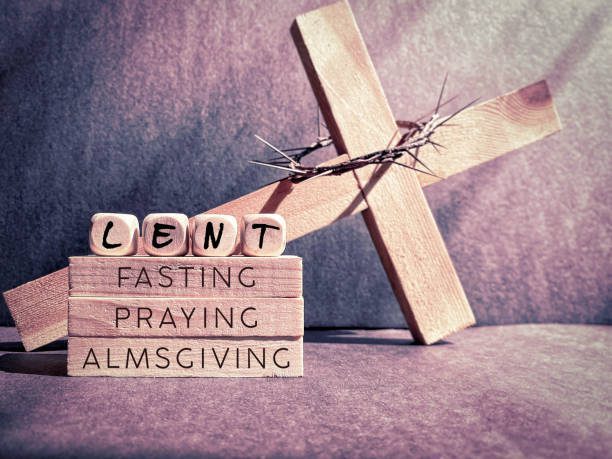
A Fresh Look for a Generation Seeking Real Faith
You’ve probably seen the list on a church wall, a t-shirt, or a Pinterest post:
Love. Joy. Peace. Patience. Kindness. Goodness. Faithfulness. Gentleness. Self-Control.
That’s the fruit of the Spirit (Galatians 5:22–23).
But here’s the thing: these aren’t just “nice Christian traits” you try to copy. They’re evidence that something supernatural is growing inside you, something the Holy Spirit is actively forming. Let’s break them down one by one in a way that speaks to real life.
1. LOVE
“Dear children, let us not love with words or speech but with actions and in truth.” – 1 John 3:18
We live in a world where love is often performative. It’s in captions and emojis, but not always in action. The Holy Spirit teaches us to love people even when they’re difficult, unlovable, or don’t benefit us.
Real love:
- Listens before speaking
- Forgives even when it hurts
- Stays when it’s easier to walk away
2. JOY
“Though you have not seen him, you love him… you are filled with an inexpressible and glorious joy.” – 1 Peter 1:8
Joy is different from happiness. It’s not tied to a vibe, a relationship, or a goal. Joy is deep and steady.
You can be battling anxiety and still carry joy. You can be broke and still feel joy. Why? Because joy is rooted in who God is, not what life looks like.
3. PEACE
“You will keep in perfect peace those whose minds are steadfast, because they trust in you.” – Isaiah 26:3
Peace isn’t passive. It’s fierce trust in the middle of chaos.
For young people constantly hit with bad news, mental pressure, and overthinking, peace feels rare. But the Holy Spirit anchors us when the world spins. Peace shows up in how we handle pressure, stay grounded in prayer, and choose surrender over control.
4. PATIENCE
“Be completely humble and gentle; be patient, bearing with one another in love.” – Ephesians 4:2
We’re an instant generation, streaming, deliveries, dating apps. We’re wired for now.
But spiritual maturity grows in the slow seasons. Patience is learning to:
- Wait without whining
- Love people who don’t “get it” yet
- Trust God’s timeline, not your own
It’s not natural, but it’s powerful and deeply needed in a culture obsessed with speed.
5. KINDNESS
“God’s kindness is intended to lead you to repentance.” – Romans 2:4
Kindness isn’t just random acts. It’s intentional compassion.
It’s DM-ing someone just to check in.
It’s being gentle when you have every reason to be cold.
It’s choosing not to clap back even when you could go viral.
Kindness is powerful because it reflects the kindness God showed us.
6. GOODNESS
“Do not be overcome by evil, but overcome evil with good.” – Romans 12:21
Goodness is about integrity when no one’s watching.
It’s not about being a “good person”, it’s about choosing what’s right, even when it costs you.
It’s:
- Being honest when you could cut corners
- Calling out injustice, even if it’s unpopular
- Living with purity in a world that celebrates compromise
7. FAITHFULNESS
“His master replied, ‘Well done, good and faithful servant!’” – Matthew 25:21
This one’s about showing up in relationships, in responsibilities, and in your walk with God.
Faithfulness says:
- “I’ll keep praying, even when I feel nothing.”
- “I’ll show up for my friends when it’s not convenient.”
- “I’ll follow through on what I said.”
In a culture that glorifies jumping ship, faithfulness is countercultural—and deeply beautiful.
8. GENTLENESS
“Let your gentleness be evident to all.” – Philippians 4:5
Gentleness isn’t weakness. It’s controlled strength.
In a world where loud = power, the Spirit teaches us a quieter strength.
Gentleness shows up when:
- You disagree without disrespecting
- You lead without dominating
- You correct without crushing
Jesus was gentle with the broken and we’re called to be like Him.
9. SELF-CONTROL
“Like a city whose walls are broken through is a person who lacks self-control.” – Proverbs 25:28
Without self-control, everything else crumbles.
It’s the Spirit saying:
- “Don’t send that text.”
- “Pause before you scroll.”
- “Say no when you know it’s not worth it.”
This fruit guards your peace, protects your witness, and empowers you to make decisions that align with your purpose not your impulse.
Final Thoughts: Fruit Takes Time
You don’t become a walking, talking Fruit Basket overnight.
But if you stay rooted in Jesus, the Holy Spirit will grow this fruit in you gradually, powerfully, and authentically.
You might not see it every day. But others will.
And in a world craving something real, the Spirit’s fruit is the loudest quiet message you’ll ever carry.
Ask Yourself:
- Which fruit comes easiest for me?
- Which one is God stretching in me right now?
- How can I lean into the Spirit more today?
Next Step:
If you’re serious about growth, start a “Fruit Check” journal every week, reflect on one fruit and ask:
“How did I live this out or not this week?”
Spiritual growth isn’t about perfection. It’s about progress. And you don’t walk it alone, the Spirit walks with you.

When we think of great love stories in the Bible, Zechariah and Elizabeth often stand in the shadows of more well-known couples like Ruth and Boaz or Jacob and Rachel. Yet, their story is one of deep love, unwavering faith, and patience in the face of life’s greatest trials. This love season, let’s reflect on their journey and what it teaches us about godly love.
1. A Love Built on Righteousness
Zechariah and Elizabeth were not just an ordinary couple. The Bible describes them as righteous, walking blamelessly before God. Their love was founded on their shared devotion to the Lord.
“Both of them were righteous in the sight of God, observing all the Lord’s commands and decrees blamelessly.” – Luke 1:6
Their relationship teaches us that a strong marriage is not just about romance but about walking together in faith and obedience to God.
2. A Marriage Tested by Waiting
For years, Zechariah and Elizabeth longed for a child, but Elizabeth remained barren. Despite the cultural shame and personal pain, their love endured. They didn’t turn against each other or against God. Instead, they continued to serve Him faithfully.
“Hope deferred makes the heart sick, but a longing fulfilled is a tree of life.” – Proverbs 13:12
Their story reminds us that true love stands strong, even in seasons of waiting and disappointment.
3. An Answer to Their Prayers
One day, while serving as a priest in the temple, Zechariah received an angelic visitation. The angel Gabriel announced that Elizabeth would bear a son, John the Baptist, who would prepare the way for the Lord.
“But the angel said to him: ‘Do not be afraid, Zechariah; your prayer has been heard. Your wife Elizabeth will bear you a son, and you are to call him John.’” – Luke 1:13
God’s timing is perfect. When we trust Him, He blesses us in ways beyond our expectations.
4. A Love Strengthened Through Trials
Zechariah initially doubted the angel’s message, and as a result, he was struck mute until the prophecy was fulfilled. Imagine Elizabeth’s role in this period—caring for her husband, encouraging him, and preparing for their long-awaited child.
“Two are better than one, because they have a good return for their labor: If either of them falls down, one can help the other up.” – Ecclesiastes 4:9-10
A strong marriage means supporting each other even when faith wavers.
5. Rejoicing in God’s Blessing
When Elizabeth finally conceived, she rejoiced, knowing that God had lifted her reproach.
“The Lord has done this for me. In these days he has shown his favour and taken away my disgrace among the people.” – Luke 1:25
Their story shows us that God’s blessings come in His perfect time, and when they do, they bring great joy.
6. A Legacy of Faith and Obedience
When their son was born, the community expected them to name him after Zechariah. But in obedience to God’s instruction, they named him John. Zechariah’s speech was restored, and he praised God.
“Immediately his mouth was opened and his tongue set free, and he began to speak, praising God.” – Luke 1:64
Love thrives when it is rooted in obedience to God’s will.
7. The Power of a Love That Glorifies God
Zechariah and Elizabeth’s love story wasn’t just about romance; it was about being part of God’s greater plan. Their faith and endurance led to the birth of John the Baptist, the forerunner of Jesus Christ.
“But seek first his kingdom and his righteousness, and all these things will be given to you as well.” – Matthew 6:33
When couples seek God first, their love becomes a testimony of His faithfulness.

The love story of Ruth and Boaz is one of the most heartwarming narratives in the Bible. It highlights loyalty, kindness, and the providence of God. Below is a seven-part exploration of their story, showcasing key moments and lessons we can learn.
1. Ruth’s Loyal Love for Naomi
Bible Verse: “But Ruth replied, ‘Don’t urge me to leave you or to turn back from you. Where you go, I will go, and where you stay, I will stay. Your people will be my people and your God my God.'” (Ruth 1:16)
The story begins with Ruth’s decision to stay with her mother-in-law, Naomi, after the loss of their husbands. Despite being a Moabite with no obligation to remain, Ruth chooses loyalty and selfless love over personal comfort. Her declaration of commitment is a profound example of love rooted in devotion and faith.
Lesson: True love often involves sacrifice and putting others’ needs before your own.
2. Ruth’s Humility and Hard Work
Bible Verse: “Let me go to the fields and pick up the leftover grain behind anyone in whose eyes I find favor.” (Ruth 2:2)
Arriving in Bethlehem, Ruth immediately seeks ways to provide for herself and Naomi. She humbly works in the fields, gleaning leftover grain, which was allowed under the law for the poor (Leviticus 19:9-10). Her actions reflect love expressed through diligence and service.
Lesson: Love is not just about words but is demonstrated through actions of care and responsibility.
3. Boaz’s Kindness Toward Ruth
Bible Verse: “The Lord bless you, my daughter. This kindness is greater than that which you showed earlier… You have not run after the younger men, whether rich or poor.” (Ruth 3:10)
Boaz, a wealthy landowner and relative of Naomi, notices Ruth’s character and dedication. He treats her with kindness, ensuring she has more than enough grain and protection while working in his fields. Boaz’s actions are motivated by compassion and respect for Ruth’s integrity.
Lesson: Love involves recognizing and honoring the worth of others, especially their character and efforts.
4. Ruth’s Bold Request for Redemption
Bible Verse: “Spread the corner of your garment over me, since you are a guardian-redeemer of our family.” (Ruth 3:9)
Following Naomi’s guidance, Ruth approaches Boaz at night, asking him to act as her kinsman-redeemer. This was not a romantic gesture in the modern sense but a cultural and legal request for protection and provision. Ruth’s boldness reflects her trust in both Boaz and God’s plan.
Lesson: Love sometimes requires stepping out in faith and making courageous decisions.
5. Boaz’s Integrity and Commitment
Bible Verse: “I will do for you all you ask. All the people of my town know that you are a woman of noble character.” (Ruth 3:11)
Boaz agrees to Ruth’s request but ensures the proper legal steps are taken first. He respects the traditions and laws of Israel, seeking permission from a closer relative before redeeming Ruth. His actions show his integrity and willingness to do things the right way.
Lesson: Love is honorable and seeks to uphold righteousness in all circumstances.
6. The Marriage of Ruth and Boaz
Bible Verse: “So Boaz took Ruth and she became his wife. When he made love to her, the Lord enabled her to conceive, and she gave birth to a son.” (Ruth 4:13)
Boaz redeems Ruth and marries her, fulfilling his role as her kinsman-redeemer. Their union is not only a picture of love between two people but also a reflection of God’s faithfulness in providing for His people.
Lesson: God honors love that is rooted in obedience, faithfulness, and His divine plan.
7. God’s Providential Love Through Their Lineage
Bible Verse: “Then Naomi took the child in her arms and cared for him. The women living there said, ‘Naomi has a son!’ And they named him Obed. He was the father of Jesse, the father of David.” (Ruth 4:16-17)
Ruth and Boaz’s love story is woven into God’s grand plan. Their son, Obed, becomes the grandfather of King David, placing them in the lineage of Jesus Christ (Matthew 1:5). This demonstrates how God uses love and faithfulness to fulfill His promises.
Lesson: Love that honors God has eternal significance, impacting generations to come.
Conclusion
The story of Ruth and Boaz is more than a romance—it’s a testament to God’s providence and the power of love rooted in loyalty, humility, and faith. Their story encourages us to trust God’s plan, love selflessly, and honor Him in all our relationships.
Let this example inspire us to live with the same devotion and integrity, trusting that God is working behind the scenes to bring about His perfect plan for our lives.

Avoiding stress during exams is essential for maintaining focus, performing well, and staying healthy. Here’s a biblical, practical, and actionable guide to managing stress effectively during exam time:
1. Start with Prayer and Trust in God
- Philippians 4:6-7 – “Do not be anxious about anything, but in every situation, by prayer and petition, with thanksgiving, present your requests to God.”
Tip: Whenever you feel overwhelmed, pause and pray. Surrender your worries to God.
Action:
- Start and end your study sessions with a short prayer.
- Keep a prayer journal where you express your concerns and ask God for peace.
2. Stay Organized with a Study Plan
- 1 Corinthians 14:40 – “But everything should be done in a fitting and orderly way.”
Tip: A well-organized study schedule prevents last-minute cramming and reduces stress.
Action:
- Break your syllabus into manageable chunks, covering a little every day.
- Use tools like a study timetable or to-do list to track progress.
3. Take Care of Your Body
- 1 Corinthians 6:19-20 – “Your body is a temple of the Holy Spirit… Therefore, honor God with your bodies.”
Tip: Eating well, exercising, and sleeping enough will help your brain function better.
Action:
- Exercise: Take short walks or do light stretches between study sessions.
- Sleep: Aim for 7-8 hours of sleep per night to improve concentration.
- Eat Nutritious Foods: Include fruits, vegetables, and water to keep your energy up.
4. Take Breaks and Rest
- Exodus 20:8-10 – “Remember the Sabbath day by keeping it holy…”
Tip: Rest is essential to recharge your brain and avoid burnout.
Action:
- Take 10-15 minute breaks every hour to relax your mind.
- Set aside one day a week to rest and engage in something you enjoy.
5. Avoid Comparison with Others
- Galatians 6:4 – “Each one should test their own actions… without comparing themselves to someone else.”
Tip: Comparing yourself with classmates can lead to unnecessary anxiety. Focus on your progress and efforts.
Action:
- Remind yourself that your journey is unique, and God has a plan for you.
- Celebrate small achievements along the way, like completing a topic or practice test.
6. Practice Deep Breathing and Relaxation Techniques
- Psalm 46:10 – “Be still, and know that I am God.”
Tip: When stress creeps in, breathe deeply and meditate on God’s presence.
Action:
- Deep Breathing: Inhale for 4 seconds, hold for 4 seconds, and exhale for 4 seconds. Repeat several times.
- Play soft, relaxing worship music while you study or during breaks.
7. Stay Positive and Speak Life Over Yourself
- Proverbs 18:21 – “The tongue has the power of life and death…”
Tip: Replace negative thoughts with positive affirmations rooted in Scripture.
Action:
- Speak aloud Scriptures like: “I can do all things through Christ who strengthens me” (Philippians 4:13).
- Avoid saying things like “I will fail” or “This is too hard.” Instead, say, “I am prepared, and God is with me.”
8. Engage in Fellowship with Others
- Ecclesiastes 4:9-10 – “Two are better than one… If one falls down, the other can help him up.”
Tip: Talk to family, friends, or mentors when you feel overwhelmed.
Action:
- Join a study group for encouragement.
- Share your concerns with someone who can pray with you and provide guidance.
9. Limit Distractions and Focus on the Present
- Matthew 6:34 – “Do not worry about tomorrow, for tomorrow will worry about itself.”
Tip: Avoid worrying about the future or dwelling on past mistakes. Stay focused on what you can do today.
Action:
- Set specific times to study without distractions from social media or phone notifications.
- Tackle one subject or task at a time to avoid overwhelm.
10. Trust God with the Outcome
- Proverbs 3:5-6 – “Trust in the Lord with all your heart and lean not on your own understanding…”
Tip: After you’ve done your best, trust God to handle the rest.
Action:
- After each exam, pray and thank God for the strength to finish.
- Avoid overanalyzing your performance, trust that God’s plan is perfect.
Conclusion
Managing stress during exams is about trusting God, planning wisely, taking care of yourself, and staying focused on the present. Remember that success is not just about grades—it’s about learning, growing, and relying on God’s strength. Following this guide will help you stay calm, focused, and productive throughout the exam season. You’ve got this! God is with you every step of the way.

Love and relationships are important aspects of life, especially for younger generations navigating friendships, family dynamics, dating, and social connections. In a world where love is often portrayed in a confusing, fleeting, or superficial way, the Bible offers clear and timeless wisdom on what love truly means and how to build healthy relationships.
Here are seven Bible verses that will help guide you through the complexities of love and relationships.
1. 1 Corinthians 13:4-7 — “Love is patient, love is kind. It does not envy, it does not boast, it is not proud. It does not dishonor others, it is not self-seeking, it is not easily angered, it keeps no record of wrongs. Love does not delight in evil but rejoices with the truth. It always protects, always trusts, always hopes, always perseveres.”
In a world that sometimes focuses on instant gratification and fleeting emotions, the Bible reminds us that love is more about giving than receiving. Love isn’t just a feeling; it’s a choice to act with kindness and humility, even when it’s hard.
2. Matthew 22:37-39 — “Jesus replied: ‘Love the Lord your God with all your heart and with all your soul and with all your mind.’ This is the first and greatest commandment. And the second is like it: ‘Love your neighbor as yourself.’”
Jesus simplifies love and relationships into two commandments: loving God first and then loving others. When your relationships are rooted in love for God, they will naturally reflect a love that values and respects others.
3. Proverbs 17:17 — “A friend loves at all times, and a brother is born for a time of adversity.”
Friendships and community are crucial, especially for the younger generation navigating through life’s challenges. Genuine friends love in every season, not just when it’s easy or convenient. They are there to support you during difficult times, and they offer strength and encouragement when you need it most.
4. 1 John 4:18 — “There is no fear in love. But perfect love drives out fear, because fear has to do with punishment. The one who fears is not made perfect in love.”
Many young people experience anxiety, fear, or insecurity in relationships, whether it’s fear of rejection, fear of not being enough, or fear of vulnerability. But this verse reminds us that real love, the kind of love God gives, casts out fear. In healthy relationships, love should create a sense of safety, not fear or insecurity. When you’re in a relationship that reflects God’s love, you will feel valued and cherished, not afraid or anxious.
5. Ephesians 4:2-3 — “Be completely humble and gentle; be patient, bearing with one another in love. Make every effort to keep the unity of the Spirit through the bond of peace.”
In a world where arguments and conflict are common, these verses from Ephesians encourage us to practice humility, patience, and unity in our relationships. It’s not always easy, but maintaining peace and working toward understanding are key aspects of healthy connections. Love isn’t about always being right; sometimes it’s about listening, understanding, and choosing peace over conflict.
6. Song of Solomon 8:4 — “Do not arouse or awaken love until it so desires.”
For young people, particularly in the context of dating and romantic relationships, this verse offers wisdom about timing and patience. Culture often pressures young people to rush into relationships or equates physical attraction with love. However, the Bible encourages us to wait for the right timing, to allow love to grow naturally and genuinely, without rushing into anything prematurely. This ensures that relationships are based on genuine connection and mutual respect.
7. Romans 12:10 — “Be devoted to one another in love. Honor one another above yourselves.”
Instead of asking, “What can I get out of this relationship?” we are encouraged to honor and respect others, putting their needs ahead of our own. True love is about devotion and commitment, not just convenience or personal gain. When you prioritize honoring others, you build relationships that are strong, meaningful, and lasting.
Conclusion
Navigating love and relationships as a young person can be challenging, especially in a world filled with mixed messages about what love is and how relationships should work. However, these Bible verses provide a clear and countercultural view of love: one that is selfless, patient, kind, and enduring. Love isn’t just about feelings, it’s about action, commitment, and putting others before yourself. When your relationships are rooted in these principles, they will flourish in ways that bring fulfillment, joy, and peace. So, take these truths with you as you navigate love and relationships, always remembering that God’s love is the foundation of all healthy connections.

The season of harvest is a time of gratitude, reflection, and abundance. For farmers, it signifies the end of a season of hard work, when crops are gathered, and the fruits of labor are celebrated. Spiritually, it reminds us of God’s faithfulness and the importance of sowing seeds of righteousness in our lives. The Bible speaks of harvest not just as an agricultural event but as a symbol of spiritual growth, provision, and God’s blessings.
Here are seven Bible verses that reflect the beauty, meaning, and significance of harvest time:
1. Galatians 6:9
“Let us not become weary in doing good, for at the proper time we will reap a harvest if we do not give up.”
Just as the harvest comes after a season of hard labor, our spiritual harvest will come if we remain steadfast in our efforts to live righteously. God’s timing is perfect, and we must trust that our diligence will bear fruit.
2. Matthew 9:37-38
“Then he said to his disciples, ‘The harvest is plentiful but the workers are few. Ask the Lord of the harvest, therefore, to send out workers into his harvest field.’”
Here, Jesus calls on us to be workers in this field, sharing the good news of salvation and helping to bring others into the kingdom of God. Harvest time is not just about receiving but also giving — sharing God’s love with the world.
3. Psalm 126:5-6
“Those who sow with tears will reap with songs of joy. Those who go out weeping, carrying seed to sow, will return with songs of joy, carrying sheaves with them.”
We may endure seasons of sorrow, but God promises that those who faithfully sow, even through hardship, will one day reap a harvest of joy. There is hope in the midst of trials, and the harvest will be a time of celebration.
4. Proverbs 10:5
“He who gathers crops in summer is a prudent son, but he who sleeps during harvest is a disgraceful son.”
Just as a farmer must be attentive during the harvest to gather his crops, we must be alert and ready to seize the spiritual opportunities that God places before us. Laziness and neglect lead to missed blessings, but diligence ensures that we reap the benefits of our labor.
5. 2 Corinthians 9:10
“Now he who supplies seed to the sower and bread for food will also supply and increase your store of seed and will enlarge the harvest of your righteousness.”
God is the provider of all things, and He ensures that those who sow will have what they need to reap a harvest. Not only does He provide materially, but He also increases the harvest of righteousness in our lives, enabling us to grow in character, faith, and good works. Our trust in God’s provision is important to experiencing His abundance.
6. James 3:18
“Peacemakers who sow in peace reap a harvest of righteousness.”
When we sow seeds of peace and righteousness, we reap a harvest of goodness and integrity. Just as the farmer carefully chooses what to plant, we must be mindful of the seeds we sow in our relationships and daily actions.
7. John 4:35
“Don’t you have a saying, ‘It’s still four months until harvest’? I tell you, open your eyes and look at the fields! They are ripe for harvest.”
The time for action is now, not later. The fields are ripe, and God is calling us to step into His work, sharing His love and truth with those who are ready to receive it. There is an urgency in the harvest, and we are called to respond.
Conclusion
Harvest time is a powerful reminder of God’s faithfulness and the spiritual principles of sowing and reaping. Whether we are harvesting crops or gathering the fruits of our spiritual labor, we are called to trust in God’s provision and timing. As we reflect on these Bible verses, may we be inspired to continue sowing seeds of righteousness, peace, and faithfulness, knowing that in due season, we will reap a bountiful harvest.

The Bible is rich with wisdom regarding the power of our words. Throughout Scripture, we are reminded that the tongue—though small—holds the capacity to uplift, destroy, heal, or harm. The words we speak can shape destinies, mend relationships, or cause deep wounds. Let’s explore seven Bible verses that illuminate the profound power of the tongue.
1. Proverbs 18:21 – “Death and life are in the power of the tongue, and those who love it will eat its fruits.”
The words we choose to speak can bring encouragement, love, and healing, or they can cause hurt, division, and destruction. The “fruits” we reap from our words reflect their power—whether for good or ill.
2. James 3:5-6 – “So also the tongue is a small member, yet it boasts of great things. How great a forest is set ablaze by such a small fire! And the tongue is a fire, a world of unrighteousness.”
Although it is a small part of the body, the tongue can cause significant harm, much like a small spark can ignite an entire forest fire. James warns believers of the dangers of careless speech, reminding us that words can spread like wildfire, causing damage that can be difficult to undo.
3. Proverbs 12:18 – “There is one whose rash words are like sword thrusts, but the tongue of the wise brings healing.”
Words spoken in haste or anger can cut deeply, inflicting pain and damage similar to physical wounds. Conversely, wise and thoughtful words can bring comfort, peace, and restoration, highlighting the importance of controlling our speech and choosing our words carefully.
4. Ephesians 4:29 – “Let no corrupting talk come out of your mouths, but only such as is good for building up, as fits the occasion, that it may give grace to those who hear.”
We are urged to avoid corrupting or harmful talk and instead speak in ways that edify and encourage others. Words have the power to build up or tear down, and we are encouraged to use our speech to impart grace and support to those around us.
5. Proverbs 15:4 – “A gentle tongue is a tree of life, but perverseness in it breaks the spirit.”
A gentle tongue, like a tree of life, offers nourishment, strength, and growth. In contrast, perverse or harsh speech can crush a person’s spirit, leading to discouragement and despair. The verse encourages us to speak with kindness and gentleness, fostering life and growth in others.
6. Matthew 12:36-37 – “I tell you, on the day of judgment people will give account for every careless word they speak, for by your words you will be justified, and by your words you will be condemned.”
Jesus’ words in Matthew are a sobering reminder of the accountability we have for our speech. Every word we speak—careless or otherwise—will be subject to judgment. Our words reflect our hearts, and they play a role in our justification or condemnation. This verse underscores the importance of being mindful of our speech, knowing that it has eternal consequences.
7. Proverbs 16:24 – “Gracious words are like a honeycomb, sweetness to the soul and health to the body.”
Words that are kind, loving, and considerate are likened to honeycomb—sweet and nourishing, bringing joy and health to both the speaker and the listener. The verse encourages us to speak in ways that bring sweetness and well-being to others, reflecting the love and grace of God through our words.
Conclusion
The Bible consistently teaches that the tongue, though small, wields immense power. It can bring life or death, healing or harm, joy or sorrow. As followers of Christ, we are called to use our words wisely, to speak life, and to reflect God’s love through our speech. By guarding our tongues and choosing our words carefully, we can positively influence those around us and honor God with our speech.

Prayer is a vital aspect of the Christian faith, serving as a direct line of communication with God. The Bible offers numerous verses that can guide and inspire us in our prayer life. Here are seven Bible verses that can help you to pray:
1. Matthew 6:9-13
“This, then, is how you should pray: ‘Our Father in heaven, hallowed be your name, your kingdom come, your will be done, on earth as it is in heaven. Give us today our daily bread. And forgive us our debts, as we also have forgiven our debtors. And lead us not into temptation, but deliver us from the evil one.’”
The Lord’s Prayer, provides a perfect model for prayer. It includes elements of praise, submission to God’s will, requests for daily needs, forgiveness, and guidance. Using this structure can help us cover all aspects of our spiritual life in prayer.
2. Philippians 4:6
“Do not be anxious about anything, but in every situation, by prayer and petition, with thanksgiving, present your requests to God.”
You are encouraged to turn your worries into prayers. This verse emphasizes importance of approaching God with your needs and anxieties, coupled with a heart of gratitude. This verse reminds you that prayer is a means to relieve anxiety and to trust in God’s provision.
3. 1 Thessalonians 5:16
“Rejoice always, pray continually, give thanks in all circumstances; for this is God’s will for you in Christ Jesus.”
Praying continually doesn’t mean being on our knees all day but maintaining a constant awareness of God’s presence and turning to Him throughout our day. It encourages an attitude of gratitude and joy in all circumstances.
4. James 5:16
“Therefore confess your sins to each other and pray for each other so that you may be healed. The prayer of a righteous person is powerful and effective.”
James 5:16 emphasizes the power of communal prayer and confession. It encourages us to support each other through prayer and to recognize the importance of a righteous person’s prayer. You are encouraged to seek out prayer partners and to be diligent in your intercessions for others.
5. Romans 8:26
“In the same way, the Spirit helps us in our weakness. We do not know what we ought to pray for, but the Spirit himself intercedes for us through wordless groans.”
You can find comfort in knowing that the Holy Spirit assists you in your prayers, especially when you are uncertain about what to pray for. The Spirit’s intercession ensures that your prayers align with God’s will, providing a deeper connection in your communication with God.
6. Matthew 7:7-8
“Ask and it will be given to you; seek and you will find; knock and the door will be opened to you. For everyone who asks receives; the one who seeks finds; and to the one who knocks, the door will be opened.”
Jesus assures you that your earnest seeking and asking will not go unanswered. This promise can bolster your confidence in approaching God with your needs and desires, knowing that He listens and responds.
7. 1 John 5:14-15
“This is the confidence we have in approaching God: that if we ask anything according to his will, he hears us. And if we know that he hears us—whatever we ask—we know that we have what we asked of him.”
God is attentive to your prayers. It highlights the importance of aligning your requests with His will, giving you confidence that your prayers are heard and will be answered in accordance with His divine plan.
Conclusion
Prayer is a powerful and essential practice in the Christian life. These seven Bible verses offer guidance, encouragement, and assurance in our prayer journey. By meditating on and incorporating these scriptures into your prayer life, you can deepen your relationship with God, approach Him with confidence, and experience the transformative power of prayer.

Prayer is a vital aspect of the Christian faith, serving as a direct line of communication with God. The Bible offers numerous verses that can guide and inspire us in our prayer life. Here are seven Bible verses that can help you to pray:
1. Matthew 6:9-13
“This, then, is how you should pray: ‘Our Father in heaven, hallowed be your name, your kingdom come, your will be done, on earth as it is in heaven. Give us today our daily bread. And forgive us our debts, as we also have forgiven our debtors. And lead us not into temptation, but deliver us from the evil one.’”
The Lord’s Prayer, provides a perfect model for prayer. It includes elements of praise, submission to God’s will, requests for daily needs, forgiveness, and guidance. Using this structure can help us cover all aspects of our spiritual life in prayer.
2. Philippians 4:6
“Do not be anxious about anything, but in every situation, by prayer and petition, with thanksgiving, present your requests to God.”
You are encouraged to turn your worries into prayers. This verse emphasizes importance of approaching God with your needs and anxieties, coupled with a heart of gratitude. This verse reminds you that prayer is a means to relieve anxiety and to trust in God’s provision.
3. 1 Thessalonians 5:16
“Rejoice always, pray continually, give thanks in all circumstances; for this is God’s will for you in Christ Jesus.”
Praying continually doesn’t mean being on our knees all day but maintaining a constant awareness of God’s presence and turning to Him throughout our day. It encourages an attitude of gratitude and joy in all circumstances.
4. James 5:16
“Therefore confess your sins to each other and pray for each other so that you may be healed. The prayer of a righteous person is powerful and effective.”
James 5:16 emphasizes the power of communal prayer and confession. It encourages us to support each other through prayer and to recognize the importance of a righteous person’s prayer. You are encouraged to seek out prayer partners and to be diligent in your intercessions for others.
5. Romans 8:26
“In the same way, the Spirit helps us in our weakness. We do not know what we ought to pray for, but the Spirit himself intercedes for us through wordless groans.”
You can find comfort in knowing that the Holy Spirit assists you in your prayers, especially when you are uncertain about what to pray for. The Spirit’s intercession ensures that your prayers align with God’s will, providing a deeper connection in your communication with God.
6. Matthew 7:7-8
“Ask and it will be given to you; seek and you will find; knock and the door will be opened to you. For everyone who asks receives; the one who seeks finds; and to the one who knocks, the door will be opened.”
Jesus assures you that your earnest seeking and asking will not go unanswered. This promise can bolster your confidence in approaching God with your needs and desires, knowing that He listens and responds.
7. 1 John 5:14-15
“This is the confidence we have in approaching God: that if we ask anything according to his will, he hears us. And if we know that he hears us—whatever we ask—we know that we have what we asked of him.”
God is attentive to your prayers. It highlights the importance of aligning your requests with His will, giving you confidence that your prayers are heard and will be answered in accordance with His divine plan.
Conclusion
Prayer is a powerful and essential practice in the Christian life. These seven Bible verses offer guidance, encouragement, and assurance in our prayer journey. By meditating on and incorporating these scriptures into your prayer life, you can deepen your relationship with God, approach Him with confidence, and experience the transformative power of prayer.

Marriage is the foundation for the Christian family. Husband and wife and by God’s grace blessed with children. Whether you hope to marry one day or are already married it’s good to go to the Bible and learn about marriage.
- Genesis 2:24 Therefore a man shall leave his father and his mother and hold fast to his wife, and they shall become one flesh.
Marriage is mentioned already in creation. Whether you are already married or not, here are Bible verses to guide you to what the Bible says about marriage.
- 1 Corinthians 7:2 But because of the temptation to sexual immorality, each man should have his own wife and each woman her own husband.
There are many kinds of temptations in the world. To be married is to give our love and loyalty to our husband or wife.
- Ephesians 5:25 Husbands, love your wives, as Christ loved the church and gave himself up for her
In a Christian marriage the husband is to love his wife as Christ loved us. This is to love even when it’s not deserved, unconditionally.
- Colossians 3:18-19 Wives, submit to your husbands, as is fitting in the Lord. Husbands, love your wives, and do not be harsh with them.
Love between husband and wife includes for the husband to be gentle and giving himself up for his wife, and for the wife to submit to and respect her husband.
- Exodus 20:14 You shall not commit adultery.
Loyalty and trust are fundamental in all relationships. In marriage that means to forsake all others and not have any other intimate relationships.
- Matthew 5:27-28 You have heard that it was said, ‘You shall not commit adultery.’ But I say to you that everyone who looks at a woman with lustful intent has already committed adultery with her in his heart.
Jesus taught us that it’s not only the act of adultery that is breaking the commandment, but even lustful thoughts.
- Ephesians 4:32 Be kind to one another, tenderhearted, forgiving one another, as God in Christ forgave you.
Although this verse speaks of the love between all Christians, it also applies to husband and wife. Forgive each other and be kind.

Individuals working together can achieve far more than they could alone. Here are seven powerful Bible verses that emphasize the strength found in numbers and the divine wisdom behind collective effort.
1. Ecclesiastes 4:9
“Two are better than one, because they have a good return for their labor.
Having others by our side multiplies our capacity to endure and succeed. Unity provides resilience and strength.
2. Proverbs 27:17
“As iron sharpens iron, so one person sharpens another.”
Just as iron sharpens iron, people improve and refine each other through interaction, support, and sometimes even constructive criticism. There is necessity of community for personal growth and strength.
3. Matthew 18:20
“For where two or three gather in my name, there am I with them.”
Jesus reassures His followers that His presence is magnified when they come together in His name. This promise of divine presence reinforces the idea that gathering as a community not only strengthens human bonds but also invites God’s active participation and blessing.
4. 1 Corinthians 12:12
“Just as a body, though one, has many parts, but all its many parts form one body, so it is with Christ.
Each member within a community has a unique role, and together they form a complete, functioning whole. This interdependence ensures that the community is stronger and more effective than any single member could be alone.
5. Hebrews 10:24
“And let us consider how we may spur one another on toward love and good deeds,
In a world that often promotes individualism, this call to gather and support one another remains profoundly powerful.
6. Acts 2:44
All the believers were together and had everything in common.
The early church’s shared life, mutual support, and communal worship were sources of strength and growth. This highlights the power of collective living and the positive impact it has on both the community and its outreach.
7. Ephesians 4:11
“So Christ himself gave the apostles, the prophets, the evangelists, the pastors and teachers.
The diversity of gifts within the church play a role to build up the community towards unity and maturity in faith. Each role is crucial, and together, they contribute to the growth and strength of the entire body of Christ.

The day is coming to an end. Before you go to sleep, take a moment to read the word of God. Pray. Lift up what you are thankful for, any worries, pray for God’s blessing as you go to sleep.
- Psalm 4:8 In peace I will both lie down and sleep; for you alone, O LORD, make me dwell in safety.
Leave the stress of the day and any worries in the hands of God. He will give you peace.
- Proverbs 3:24 If you lie down, you will not be afraid; when you lie down, your sleep will be sweet.
There can be a lot around us in our lives with our home, work, family, stress, worries and fear. Trust that God wants you to have a good sleep. We can face any challenge better if we are well rested.
- Psalm 23:2-3 He makes me lie down in green pastures. He leads me beside still waters. He restores my soul. He leads me in paths of righteousness for his name’s sake.
Trust God to lead you to rest, peace, renewed strength and energy. God wants good for us.
- Matthew 6:34 Therefore do not be anxious about tomorrow, for tomorrow will be anxious for itself. Sufficient for the day is its own trouble.
Commit your way to God. When we are led by him, we can let our worries go. Instead of being anxious about what may or may not happen tomorrow, pray to God that his will be done.
- Psalm 63:5-6 My soul will be satisfied as with fat and rich food, and my mouth will praise you with joyful lips, when I remember you upon my bed, and meditate on you in the watches of the night;
Before you sleep, it is good to take the time to read the Bible and to pray to God. It satisfies our soul.
- Exodus 33:14 And he said, “My presence will go with you, and I will give you rest.”
God is with you. If you don’t know God’s presence, seek him with all your heart. Be at peace in the presence of God.
- Psalm 116:7 Return, O my soul, to your rest; for the LORD has dealt bountifully with you.
God is a generous God. May his peace, rest and love be with you in abundance.

In times of sadness, it’s important to turn to God and find comfort in His Word. Here are some attitudes to adopt:
- Pray: ask God to help us through this trial and to give us the strength and comfort we need. “Have no anxiety about anything, but in everything by prayer and supplication with thanksgiving let your requests be made known to God.” – Philippians 4:6
- Read the Bible: look for verses that bring us comfort and hope, and meditate on their meaning. “Let the word of Christ dwell in you richly, teach and admonish one another in all wisdom, and sing psalms and hymns and spiritual songs with thankfulness in your hearts to God.” – Colossians 3:16
- Turn other Christians: share our sadness with our brothers and sisters in Christ and receive their support and prayers. “For where two or three are gathered in my name, there am I in the midst of them.” – Matthew 18:20
- Remember that God is always present and will never abandon us. He is able to turn our sadness into joy and help us through every trial. “teaching them to observe all that I have commanded you; and lo, I am with you always, to the close of the age.” – Matthew 28:20
- Show gratitude: despite sadness, remember God’s many blessings in our lives and give thanks. “give thanks in all circumstances; for this is the will of God in Christ Jesus for you.” – 1 Thessalonians 5:18
By adopting these attitudes, we can find comfort and hope in times of sorrow, knowing that God is with us and will sustain us in all circumstances.

Introduction
Have you ever wondered what’s the buzz about fasting? The Lenten season is here and fasting takes centre stage in conversations. It’s the talk of the town during these days of reflection and spiritual dedication. Lent provides a 40-day period for fasting and prayer (Sundays are excluded), in imitation of Jesus Christ’s fasting in the wilderness before he began his public ministry.
Fasting might sound like a complicated idea, but let’s break it down in simple terms and see how this ancient practice can be relevant and meaningful for you today.
Understanding Biblical Fasting
What exactly is fasting? Well, it’s not about giving up your favourite snacks or skipping meals for the sake of a diet. In the Bible, fasting is a spiritual discipline where people would voluntarily abstain from certain foods or activities for a specific period. It’s not just about going without; it’s about seeking a deeper connection with God through prayer and meditation.
Examples from the Bible
If you’re curious about how people in the Bible practiced fasting, let’s take a look at a couple of examples. Remember the story of Jesus spending 40 days and nights in the desert (Matthew 4 v 1-11)? That’s a form of fasting! Another example is found in the book of Daniel 10 v 2-3, where he chose to eat only vegetables and drink water for a set period, the Ninevah fast (Jonah 3 v 5-9) and Esther’s fast (Esther 4).
Benefits of Fasting
Why would anyone willingly give up food or certain activities? Well, there are a few reasons. Fasting allows you to:
- Draw Closer to God: By setting aside time for prayer and reflection, fasting helps strengthen your spiritual connection with God.
- Develop Self-Discipline: Fasting requires self-control and discipline. It’s a great way to practice saying ‘no’ to immediate desires for a greater purpose.
- Seek Guidance: In times of confusion or decision-making, fasting can be a way to seek God’s guidance and wisdom.
- Express Repentance: Fasting can also be a way to express sorrow for mistakes and seek forgiveness.
Now, how can you, incorporate fasting into your life in a practical way?
- Start Small: Instead of jumping into a lengthy fast, begin with a shorter period and gradually increase as you become more comfortable.
- Digital Detox: In a world where screens dominate our attention, a digital fast can be equally transformative. Dedicate a specific time each day or week to disconnect from technology and focus on prayer, meditation, or reading Scripture.
- Choose Wisely: Decide what you want to fast from – it could be a particular type of food, social media, or any activity that distracts you from having a quiet time with God.
- Set Goals: Clearly define your goals for fasting. Whether it’s seeking guidance, deepening your relationship with God, or developing self-discipline, having a purpose will make the experience more meaningful.
- Stay Connected: Engage in prayer and spend quality time meditating on the Word of God.
- Corporate Fasting: Engage in fasting as a community. Whether it’s a family, church group, or online community, coming together in a shared fast can enhance the experience and foster a sense of unity.
Conclusion
Fasting is not a one-size-fits-all practice. It’s a personal journey that allows you to grow spiritually, develop self-discipline, and seek God’s guidance. So, if you’re curious about building up your faith in a new way, consider giving fasting a try. It might just be the key to unlocking a deeper connection with God.

Matthew 4:18-20 While walking by the Sea of Galilee, he saw two brothers, Simon (who is called Peter) and Andrew his brother, casting a net into the sea, for they were fishermen. And he said to them, “Follow me, and I will make you fishers of men.” Immediately they left their nets and followed him.
God can call anyone, no matter their background, for His purpose. Paul was a simple fisherman. He was originally from Betsaida, but moved to Capernaum at some point in his life. His father was Jonah, and he had a brother, Andrew. At some point he got married, because he has a mother in law. His wife is never mentioned but 1 Corinthians 9:5 points to his wife travelling with him. Peter didn’t have a high education or elevated social status. But he was chosen by Jesus to be one of the twelve disciples
Question: How would you respond if God asked you to step away from what’s comfortable to follow His calling?

A Time of Reflection and Renewal (Lent)
Introduction:
The Lenten season, observed by some Christians worldwide, is a period of reflection, repentance, and spiritual preparation leading up to Easter Sunday. Rooted in centuries of tradition, Lent holds profound significance for believers as they embark on a journey of self-examination, sacrifice, and renewal.
Definition and Duration:
Lent is a solemn 40-day period (excluding Sundays) that commences on Ash Wednesday and concludes on Holy Saturday, the day before Easter. The duration symbolises the 40 days Jesus spent fasting in the desert (Luke 4:1-13), resisting temptation before beginning his public ministry. The word “Lent” itself is derived from the Old English word “lencten,” meaning spring, emphasising the season of new life and growth.
Practices and Traditions:
Fasting and Abstinence:
Fasting is a central pillar of Lent, representing a symbolic sacrifice and a means of self-discipline. Traditionally, Christians abstain from certain foods or activities, fostering a sense of solidarity with Jesus’ journey. Many choose to give up a particular luxury or habit, redirecting their focus towards spiritual growth.
Prayer:
Prayer is another pillar in the Lenten season. Devout Christians engage in daily prayers, meditation, and contemplation, seeking a deeper connection with God.
Almsgiving:
Acts of charity and generosity are emphasised during Lent, with believers encouraged to give to those in need. This practice aligns with the spirit of sacrifice and compassion, reflecting Jesus’ teachings on love and service to others.
Conclusion:
The Lenten season stands as a powerful and meaningful period for Christians around the world. Through fasting, prayer, and acts of kindness, believers embark on a spiritual journey, mirroring the transformative process of self-denial and renewal that Jesus experienced in the desert. As a time of introspection and preparation, Lent serves as a reminder of the central themes of the Christian faith—repentance, sacrifice, and the hope of resurrection. In embracing these practices, believers find a deeper connection to their faith and a renewed sense of purpose as they await the joyous celebration of Easter.

Lent
The Lenten season stands as a powerful and meaningful period for Christians around the world. Through fasting, prayer, and acts of kindness, believers embark on a spiritual journey, mirroring the transformative process of self-denial and renewal that Jesus experienced in the desert.

The Lenten season stands as a powerful and meaningful period for Christians around the world. Through fasting, prayer, and acts of kindness, believers embark on a spiritual journey, mirroring the transformative process of self-denial and renewal that Jesus experienced in the desert.

Peter: Called as a disciple
God can call anyone, no matter their background, for His purpose. Paul was a simple fisherman. He was originally from Betsaida, but moved to Capernaum at some point in his life. His father was Jonah, and he had a brother, Andrew. At some point he got married, because he has a mother in law.

God can call anyone, no matter their background, for His purpose. Paul was a simple fisherman. He was originally from Betsaida, but moved to Capernaum at some point in his life. His father was Jonah, and he had a brother, Andrew. At some point he got married, because he has a mother in law.
